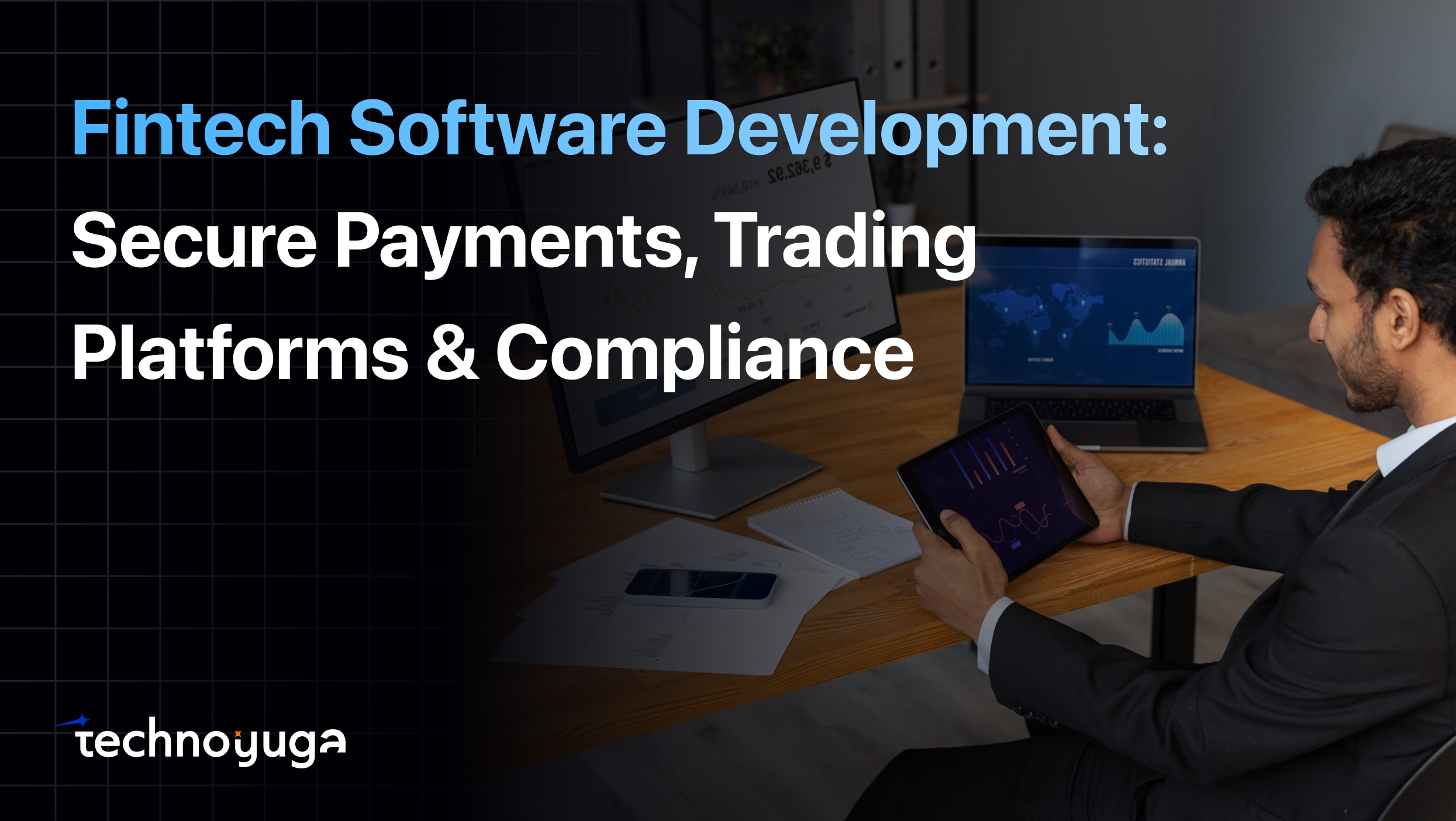Mobile app development is a thriving frontier in the ever-evolving technological landscape, shaping how we live, work, and play. As the world becomes increasingly interconnected via smartphones, the demand for innovative mobile applications continues to soar. Whether you’re an aspiring entrepreneur or a business owner looking to expand your digital presence, one inevitable question looms: What is the mobile app development cost? Right?
Today, where every swipe and tap has the potential to disrupt industries, understanding the financial aspects of app development is crucial. So, let’s explore the factors influencing the cost of mobile app development, from the complexity of the app’s features to the choice of development platform and team expertise.
Let’s begin…
How Much Does It Cost to Develop A Mobile App?
The cost of mobile app development can vary significantly based on several factors. A simple mobile app with basic functionality might cost in between $10,000 to $50,000. However, more complex mobile applications with advanced features or those requiring integration with backend systems can range from $50,000 to $100,000 or even more.
So, to discover the exact mobile app development cost, you need to share the project requirements with the mobile app development company. The professionals will analyze the project from all aspects and let you know the exact cost.
What Are the Major Factors Affecting Mobile App Development Cost?
The cost of mobile app development can be influenced by various factors, making it a dynamic and project-specific expense. Here are the major factors that affect mobile app development costs:
1. App Complexity
One of the main cost factors for your app is its complexity, which includes its features, functionality, and user interactions. It will take more time and resources to develop apps with complicated features that are more complex.
2. Platform Selection
The development cost for different platforms will vary, including iOS, Android, or cross-platform. To ensure compatibility, each platform can require unique development or alterations.
3. App Design
Though high-quality UI and UX designs improve user experiences, they can be more expensive, particularly if you need bespoke images and animations.
4. Mobile App Development Team
Your development team’s size and level of experience are crucial. Project managers, designers, and developers with advanced skills frequently attract greater salaries. So, you hire dedicated developers for your project for a specific tenure.
5. Backend Development
The cost to build mobile app goes up if the application needs to integrate with a backend server, database, or API. Backend development can be labour-intensive and complicated.
6. Third-Party Services
Integration with third-party APIs or services, such as payment gateways, mapping services, or social media, may incur extra expenditures.
7. Testing and Quality Assurance
Thorough testing and quality control are necessary but can add time and money to the development process.
8. App Maintenance and Updates
Regular updates, bug fixes, and maintenance are required to keep the app operating efficiently and securely. It’s essential to budget for post-launch assistance. So, besides seeking mobile app development services, focus on app support and maintenance.
9. Geographical Location
Costs may vary depending on where your development team or agency is located. Rates differ significantly between regions and nations.
10. Legal and Compliance Requirements
The development process may become more complicated and expensive due to complying with data protection laws, industry regulations, or patents.
11. Project Timeline
Hasty or short deadlines may result in higher expenditures since they may call for more resources or overtime labour.
12. Marketing and Promotion
Although not directly related to development, marketing and promotion are essential for the success of an app and could necessitate a different budget.
13. App Monetization Strategy
The chosen revenue model might influence the method and development cost (for example, freemium, in-app advertisements, or subscriptions).
14. Post-Launch Support
After initial development, you must set aside funds and commit resources for continuing support, upgrades, and user feedback.
It’s critical to identify your project’s scope, features, and goals to effectively estimate the expenses of mobile app development. Consider partnering with a reputed development team or agency to obtain a thorough cost breakdown and guarantee a successful app development process. So, this was all about factors for mobile app development cost breakdown. Keep them in mind before handing over your project to any professional.
How to Reduce the Mobile App Development Cost? 10 Useful Tips!
Businesses and entrepreneurs frequently aim to cut expenses while retaining the quality of mobile app development. Here are some helpful hints to lower your costs associated with creating mobile applications, as suggested by the experts of a custom mobile app development company.
1. Specified and Clear Requirements
Start by creating a clear and comprehensive project scope. Ensure you and your development team understand exactly what the app should accomplish.
2. Choose A Suitable Platform
Decide whether you need to develop Android, iOS, or both applications. Money might be saved by initially concentrating on one platform.
3. Cross-Platform Development
Think about utilizing cross-platform development frameworks like Xamarin, React Native, or Flutter. These enable you to write code once and deploy it across numerous platforms, reducing development costs and time.
4. Minimum Viable Product (MVP)
Start with an MVP that only has the most important functionalities. By doing this, you may release your app more quickly and get user input that will help inform its future development.
5. Outsource Development
Thoughtfully select a development team before outsourcing development to nations with reduced labour prices.
6. Agile Development
Use agile development methodologies to manage the project. This approach allows for flexibility, which can save costs when changes are needed.
7. Streamline Design and UX
Keep the app’s interface (UI) and user experience (UX) simple and intuitive. Complex designs can increase development time and costs.
8. Regular Testing
Conduct thorough testing throughout development to catch and fix issues early, reducing the need for costly bug fixes later.
9. App Maintenance Plan
Plan for ongoing app maintenance and updates to ensure compatibility with new OS versions and devices. It can help avoid unexpected costs down the road.
10. Marketing and Promotion
Allocate a budget for marketing and promotion to ensure your app reaches its target audience, ultimately maximizing ROI.
By implementing these tips, you can optimize your mobile app development process and control costs while delivering a high-quality product to your users. As per the app type, connect with a reliable Android app development company or iPhone app development company.
List of Hidden Mobile App Development Cost-Affecting Factors
We are all well-versed in the basic factors impacting cost to build mobile app, but there are other factors too. Yes, you read it right! Some hidden factors affect the mobile app development cost to a great extent, and businesses should know it.
1. Device Fragmentation
Additional design and testing work may be required when creating an app for different devices and screen sizes. It can take a lot of effort and money to make sure that different Android and iOS devices are compatible.
2. App Store Fees
For app submission and upkeep, app retailers like the Apple App Store and Google Play Store charge a fee. Depending on the platform and location, these fees could change.
3. App Updates and Maintenance
After the first launch, you’ll need to set aside money for recurring bug fixes, maintenance, and updates to keep the app functional and compatible with future OS releases.
4. Security Measures
It may take more time and money to build comprehensive security mechanisms that secure user data and the app.
5. Third-Party Integrations
Be ready for future subscription fees or extra development work if your app depends on third-party APIs or services in case such services alter or become unavailable.
6. Legal and Compliance
Legal advice and compliance procedures may be necessary to ensure your app complies with privacy laws and regulations, which will increase the cost of development.
7. App Analytics
Although app analytics solutions are useful, they frequently need membership fees, which can increase your operating costs.
Thorough planning and routine budget and project status reviews are crucial for reducing these hidden expenses. Consider creating a contingency fund to handle unforeseen costs incurred while developing mobile applications.
Mobile App Development Cost – Native Vs Hybrid
The cost of mobile app development can vary significantly depending on various factors, including the development approach you choose: native or hybrid. Here, we’ll compare the low cost mobile app development associated with native app development and hybrid app development to help you make an informed decision:
Native App Development:
- Development Time: Native apps are built specifically for a single platform (iOS or Android) using platform-specific languages (Swift or Objective-C for iOS, Java or Kotlin for Android).
- Maintenance: Because you have two separate codebases (one for iOS and one for Android), maintenance and updates can be more time-consuming and expensive.
- Performance: Native apps generally offer better performance and access to platform-specific features, which can enhance user experience but may require more development effort.
Hybrid App Development:
- Development Time: Hybrid apps use web technologies (HTML, CSS, JavaScript) and a single codebase that can be deployed on iOS and Android platforms. This approach can save time in development, as you only need to write the code once.
- Development Skills: Hybrid app development typically requires web development skills, which are more common and often less expensive to find than platform-specific native developers.
- Maintenance: Maintenance is simpler for hybrid apps since there’s only one codebase to update. It can lead to cost savings over time.
- Performance: While hybrid apps have improved performance, they may not be as fast as native apps, especially for resource-intensive tasks.
How Much Does It Cost To Develop An App?
The cost to develop a mobile app can vary widely depending on several factors, including complexity, features, platform, and development location. On average, a simple app with basic features might cost around $5,000 to $20,000. More complex apps with advanced features can range from $30,000 to $100,000. If you’re targeting both iOS and Android platforms, expect higher costs due to the need for separate development.
As per the mobile app development services experts, cost factors include design complexity, third-party integrations, backend development, and ongoing maintenance. Development in regions with higher labour costs, such as North America or Western Europe, tends to be more expensive than outsourcing to countries with lower labour costs, like India or Eastern Europe.
Ultimately, the exact cost will depend on your project requirements and goals. It’s essential to consult with mobile app development professionals to get accurate cost estimates tailored to your app’s unique needs.
Summing Up!!!
In conclusion, understanding the mobile app development cost associated with mobile app development is crucial for anyone embarking on this exciting journey. Developing a mobile app is an investment, and while it’s tempting to focus solely on the initial development expenses, it’s essential to think long-term.
Mobile app development costs don’t end when the app is launched; ongoing maintenance, updates, and improvements are continuous requirements. Moreover, app complexity, platform choice, and the need for third-party integrations can significantly impact your budget.
Budgeting accurately and planning for contingencies is key to a successful app development project. Cutting corners to reduce costs can compromise quality and user experience, ultimately affecting your app’s success. So, if you want to build a mobile app within a reasonable budget, contact TechnoYuga. We are a leading mobile app development company that can help you deliver outstanding business applications within a reasonable budget.








